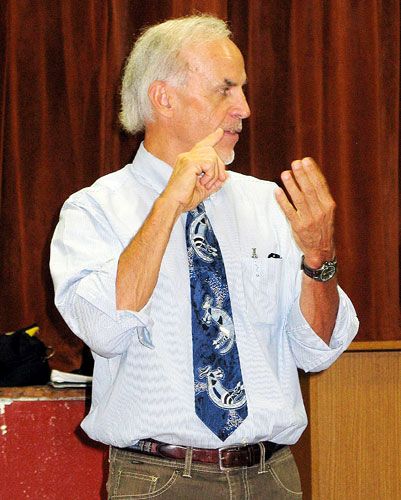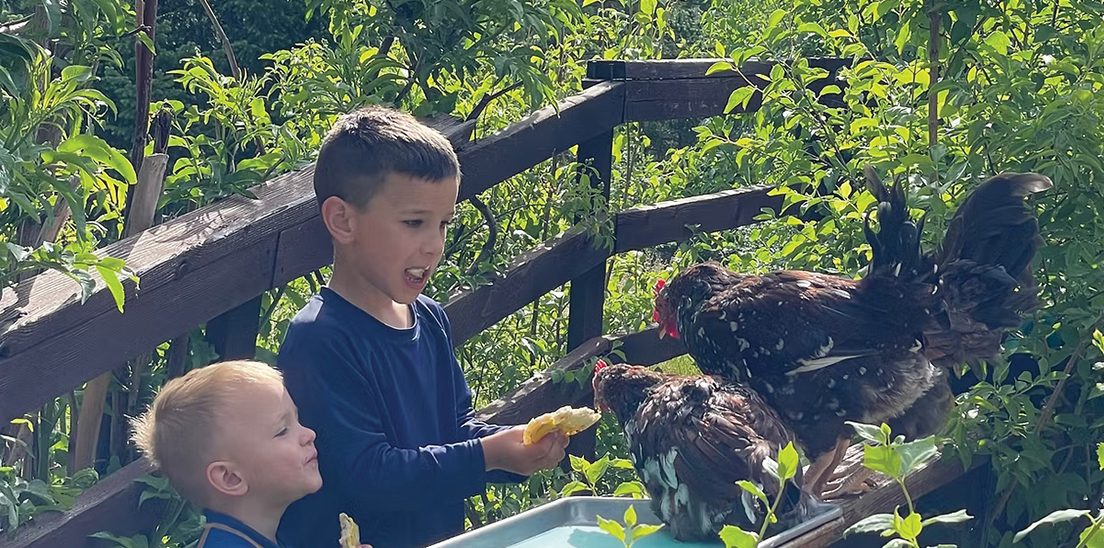Feedback from peers
Published 5:01 pm Thursday, November 3, 2011

- Kevin Feldman speaks to educators from Northeast Oregon school districts about observing instructional techniques used by teachers. Feldman is the director of reading and early intervention with the Sonoma County Office of Education in California. DICK MASON / The Observer
ELGIN – Teaching at the elementary and secondary levels can be a paradoxical experience.
Trending
It is at once an intensely people-oriented profession, yet it also can be a lonely one.
Educators spend most of their days working closely with students, but they have limited opportunities to interact with their colleagues. This robs many of the opportunity to receive feedback from their peers on what they are doing well and what they can do to improve their teaching.
How can this problem be addressed?
Trending
Kevin Feldman, director of reading and early intervention with the Sonoma County (Calif.) Office of Education, has an answer. An answer which has a number of local educators excited.
Seven or eight school districts in Northeast Oregon recently participated in a program put on by Feldman through which teachers received meaningful feedback from other teachers.
Educators at school districts in Feldman’s program observe their colleagues at work in the classroom and then provide feedback. The observations are made after teachers attended professional development sessions put on by Feldman promoting literacy and student engagement. At the observation sessions, teachers were evaluated on how well they incorporated ideas presented by Feldman.
He recently led such a session at the Elgin School District. There teachers in Feldman’s program from seven or eight area school districts observed teachers at work in their classrooms and provided feedback.
Elgin High School science teacher Emily Sorensen said she welcomed the opportunity to be observed by her peers. The constructive criticism was helpful and the positive feedback was heartening. Sorensen said teachers everywhere rarely receive compliments from their students, so the positive remarks were especially welcome.
Barbara Sibley, a fifth-grade teacher at Elgin’s Stella Mayfield School, said she was worried about how her students would respond to having teachers in their classroom observing them.
Her students were unfazed.
“They did an awesome job. They hardly noticed them,” Sibley said.
Sibley said she has picked up many tips from Feldman on how to do things like reinforce positive behavior. She has applied them and been delighted with the results.
“They are working wonders with reducing discipline problems,” Sibley said.
Sorensen said her involvement with Feldman’s project has benefited her in many ways as an educator.
Sorensen noted that it has heightened the awareness she has of every student in her classes.
Sorensen, like Sibley, said she picked up a number of teaching tips that she has successfully applied in her classroom.
“I have found ways to get more students involved. Ways to add to their excitement and motivation,” Sorensen said.
One technique she learned from Feldman that she now applies is asking students to indicate with a show of fingers on one hand how well they understood the material she just presented. Students raise five fingers to indicating that they understand it well, or one finger to indicate they did not comprehend it well.
Sorensen, following Feldman’s advice, then has students who raised five fingers meet with those who raised only a few so they can help their classmates to better understand the subject. Sorensen has found this is an excellent means of promoting student engagement in the learning process.
Elgin was among many school districts in Union and Wallowa counties that were participants in Feldman’s program, one part of the statewide Direct Access To Achievement project. Feldman’s program was put on with assistance from the InterMountain Education Service District.
Feldman said he was impressed with what he saw of the Elgin School District.
“There is a real strong spirit of community.
“I was blown away by how focused and engaged everyone was,” Feldman said. “There is a real spirit in the community.”
Feldman said he has found that educators in rural communities have skills not always found among teachers in urban areas. He attributes this to the multiple responsibilities educators have at small schools.
“In rural communities you have to be more self-reliant.”









